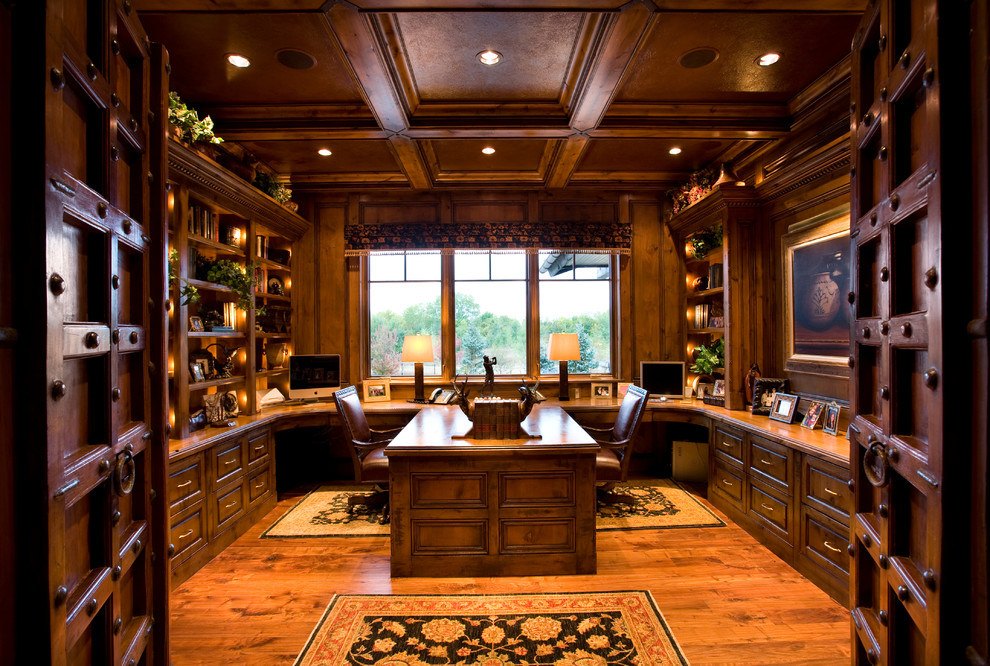

Sure, it might not seem like much, but investing in an ergonomic desk chair, a few fun knickknacks and a well-placed task light can make your day (and maybe your work) more enjoyable. Whether you use your home office as an all-day workspace or a weekends-only haven, making the spot feel more like home is a must. Avoid plug confusion by using cord labels to differentiate your desktop computer’s plug from your shredder’s. To keep those cords in check, strap them down with a cable organizer, such as a cable box or strap. The home office is a hub for every plugged-in electronic gadget imaginable with printer cords, computer cords, lamp cords and chargers, it is easy to let small electronics take over. Bow-front executive desks and U-shaped or L-shaped desks will give you plenty of room to spare, while hutch desks, secretary desks and corner desks still provide some storage while fitting nicely in small spaces. When making a purchase, think about what style of desk will work for you. When you have lots of supplies to house, it goes without saying that your desk should have plenty of drawers and cabinets. Leave the desk for things you need, such as your computer, printer and desk lamp. Although bookshelves are primarily used for storing books, they’re also a great place for displaying mementos and accessories. Desk real estate is valuable, so even though that picture frame, stuffed animal or figurine might look cute next to your laptop, it likely takes up too much workspace. Use a bookcase (or two) to store trinkets. Next time, you’ll be able to find those sticky notes right away, instead of scouring piles and piles of office supplies without any luck. Instead of creating a junk drawer, use drawer organizers and plastic compartments to ensure that each office item has a place - and that it always goes back there. As this happens over and over, an once-organized desk can turn into a disheveled mess. When you’re in a rush, it’s easy to stuff that tape dispenser in the closest drawer, regardless of where it really belongs. Keep yourself in check by creating to-do lists for smaller, everyday tasks. Place important events on a bulletin board or dry-erase board so the whole household can stay in tune. Write down family events, doctor’s appointments and trips to ensure you stay on schedule. Staying organized is key, and there is no better tool than a desk calendar or planner. Once that's done, you won’t have to deal with that paper search again! Buy a calendar and use it. Instead of trying to find a specific bill in that mound of paper, buy a filing cabinet, hanging file folders and labels, and create files with specific subjects for every item you need to keep. A paper collection is one of those things that can easily get out of hand. Take the time to create a comprehensive filing system. An organized office - one with plenty of bookcases, folders and pencil holders - will ensure that every item has a place, and in turn lead to a stress-free workweek. Because it's such a drop center, more than a few things can get lost in the shuffle. Desks become crowded with staplers, pens and calculators, while file cabinets and bookshelves contain their fair share of documents and novels. It's incredibly easy for a home office to get messy.


 0 kommentar(er)
0 kommentar(er)
